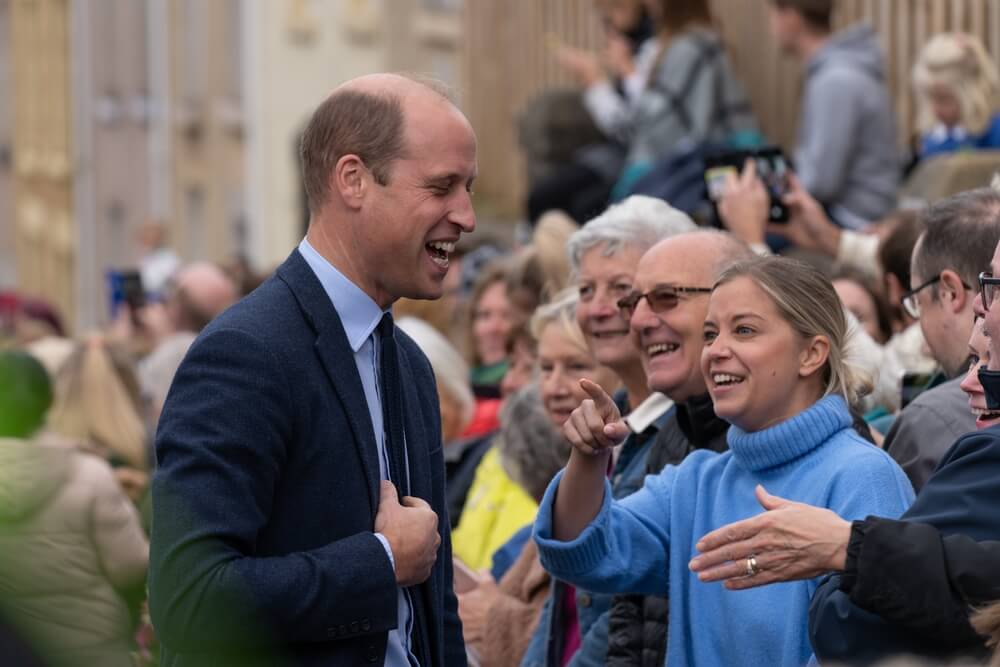And, in other royal news, King Charles III will this week break a 500-year-old taboo by travelling to the Vatican to join Pope Leo XIV in public prayer.
Even in an increasingly irreligious UK, such a historic encounter between the Catholic pontiff and the defender of the Anglican faith might be expected to attract more than a picture caption on an inside page.
Currently, however, the media and the public are rather more engaged with the latest revelations about the association between the king’s brother and the late convicted American paedophile Jeffrey Epstein.
“More days of pain ahead” for the royals
The royals were said to be braced for “more days of pain ahead” after a week in which the brother, known for now at least as Prince Andrew, renounced his other honours and titles, including that of Duke of York.
The palace briefers no doubt had in mind Tuesday’s UK publication of the posthumous memoir of Virginia Giuffre, which gives further details of her alleged sexual exploitation by the Andrew-Epstein pair.
Andrew had abandoned his ducal title after discussions with the king
Guiffre, an abuse survivor who took her own life in April this year, wrote that Andrew “was friendly enough, but still entitled - as if he believed having sex with me was his birthright.”
In last week’s statement, in which Andrew said he had abandoned his ducal title after discussions with the king, he continued to vigorously deny the accusations against him.
Polling shows faith in the heir, not the spare
The great British public appears nevertheless to have long made up its mind, based not least on Andrew’s decision to pay Giuffre a rumoured £12 million to settle a sexual abuse case in 2022.
In a ‘royal family favourability tracker’ published in August this year, the pollster YouGov reported that only 5 per cent of respondents had a positive view of the king’s brother.
The top favourability rating of 74 per cent went to the royal heir Prince William, Charles’ son and the current Prince of Wales
Historic polling suggests the public might not identify as closely with its royals as it once did. It is all the more remarkable then, given the ongoing Andrew turmoil, that a steady two-thirds of them still believe that the country should continue to have a monarchy and that the institution is good for the UK.
This belief in continuity appeared to be confirmed by the fact that the top favourability rating of 74 per cent went to the royal heir Prince William, Charles’ son and the current Prince of Wales. The public clearly retains considerably more faith in the current heir than in his uncle and one-time regal ‘spare’.
Cutting the black sheep loose
Against the odds, it seems, the Windsor family has survived the perception that, in a decade of the unfolding Andrew-Epstein saga, it had for too long stood by its errant prince.
“The pressure on the monarchy to ostracise Andrew simply became too much,” royal historian Ed Owens told the New York Times. “At a time when opinion polling reveals a subtle but steady drop in support for the monarchy, the king and his heir have finally taken firm action against Andrew to try and stem the bleeding.”
So, has the strategy worked? Or must the royals go further to cut their black sheep loose? And, in the longer term, can they assure the survival of an anachronistic institution that a sizeable minority believes has outlived its glory days?
Prince William is expected to ban Andrew from family events and from his coronation when he succeeds his 76-year-old father, Charles
Andrew withdrew from his public duties in 2019 after a disastrous BBC interview that dealt with his relationship with Epstein. The crown is now under pressure to accede to measures in Parliament to formally strip him of his titles.
MPs are meanwhile demanding to know what the palace knew and who has been picking up Andrew’s bills, a pressing vox pop concern. Committed royalists have told the media he should be banished, if not incarcerated in the Tower of London.
Prince William is so far taking a hard line. He is expected to ban Andrew from family events and from his coronation when he succeeds his 76-year-old father, Charles.
Change is on the agenda for the monarchy
If the family can negotiate the current turmoil, the indications from the public are that the monarchy will survive with a moderately positive acceptance of its role.
 I think it's safe to say that change is on my agenda. Change for good - Prince William
I think it's safe to say that change is on my agenda. Change for good - Prince William
Under Charles, the institution has already subtly changed since the country’s longest-running monarch, Queen Elizabeth II, died in 2022. The main public gripe is that it still costs too much to maintain.
The 43-year-old William says he would accelerate the pace of change, revealing in a recent documentary: “I think it's safe to say that change is on my agenda. Change for good.”
Royal watchers say his aides have nevertheless cautioned the prince against becoming a part-time king by prioritising his family life and avoiding public commitments. Queen Elizabeth made high visibility a feature of her royal style.
Polling consistently shows that belief in the monarchy is strongest among elderly conservatives and weakest among the progressive young. However, there is little evidence of any wider movement to replace an institution that has survived manifold scandals in the past.
In an increasingly uncertain world, the British may have collectively resolved that it is best to stick with the system they know, warts and all.
On balance, the House of Windsor looks safe for now.